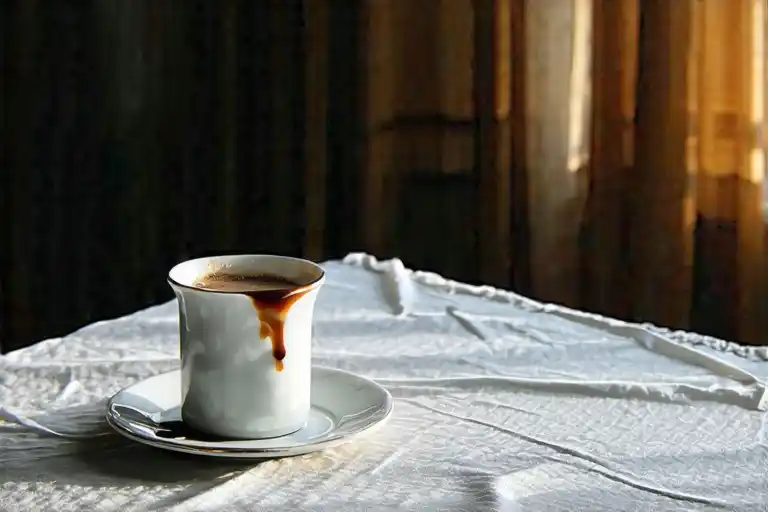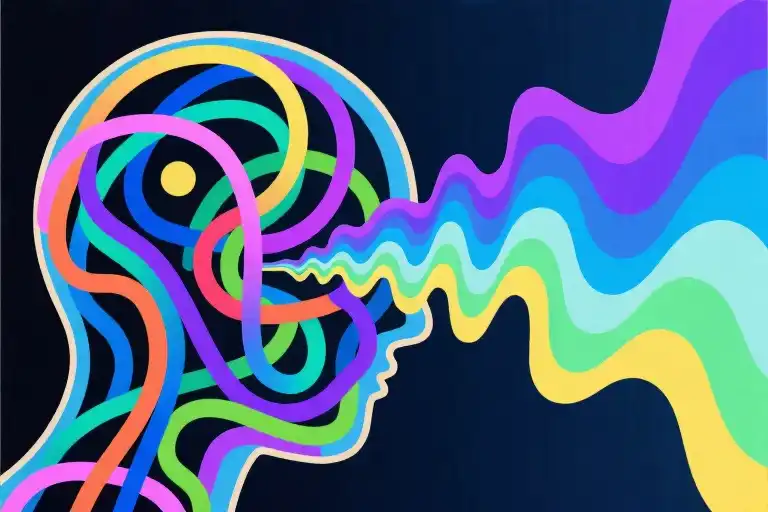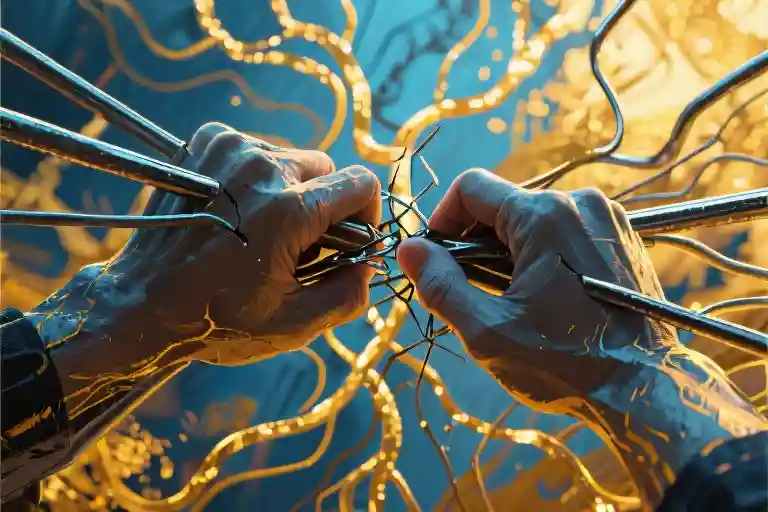The glow of golden-hour filtered coffee. The artfully crumpled linen sheets. The slow-motion bite of a croissant that took seven takes to perfect. Scroll through any social platform this March and you’ll find these #RomanticizeYourLife moments polished to cinematic perfection – while outside your actual window, rain streaks down panes in unpredictable patterns.
Last month alone, Instagram saw 4.7 million uses of romanticization hashtags. Yet simultaneously, the WHO reports anxiety disorders have risen 25% among millennials since 2020. This dissonance begs the question: When we meticulously stage our lives for public consumption, are we curating happiness or constructing elaborate sets for a performance nobody truly requested?
We’ve reached a cultural crossroads where “main character energy” no longer describes literary archetypes but mandatory personal branding. The morning coffee ritual transforms from private pleasure to content opportunity – complete with optimal lighting angles and caption brainstorming. What began as finding beauty in ordinary moments has mutated into relentless aesthetic labor, where even grocery shopping requires soundtrack consideration.
The tension lies in our dual desires: to experience genuine meaning while also being perceived as someone who experiences meaning beautifully. Platforms monetize this conflict, algorithmically rewarding those who turn daily routines into aspirational content. Your unvarnished reality earns 23 likes; your art-directed version gets 2,300. The message becomes clear: living isn’t enough – you must perform living photogenically.
But behind the Valencia-filtered facade, something essential gets lost. That first sip of coffee tastes different when your phone’s camera roll fills before your mug empties. The walk through the park becomes route-planning for optimal foliage backdrops rather than noticing how spring air carries both blossom scent and distant traffic hum. We risk becoming method actors in our own lives, prioritizing how experiences will translate digitally over how they resonate personally.
Perhaps the most subversive act today is drinking your coffee while it’s still hot – no flat lays, no golden hour, just warmth traveling from cup to bloodstream in delicious obscurity. Because real life happens between takes, in the unrecorded moments too ordinary to romanticize yet too precious to miss.
The Filtered Life: Collective Role-Playing in the Digital Age
Scrolling through TikTok’s #MainCharacterEnergy tag reveals an unsettling pattern: golden-hour walks in slow motion, steam curling from artisanal coffee cups at precisely 45-degree angles, handwritten journals opened to aesthetically imperfect (but strategically imperfect) pages. These viral templates share six standardized elements our brains now recognize as “romanticized living”:
- The Slow-Motion Mundane (brushing teeth becomes a cinematic act)
- Golden Hour Everything (even grocery shopping looks angelic at 6pm)
- Purposeful Imperfections (a single loose hair in otherwise sleek updos)
- Ambient Silence (no awkward coughs or fridge hums in “raw” footage)
- Third-Person Perspective (filming oneself reading as if observed by an admirer)
- The Satisfying Click (ASMR-like closures of vintage notebooks or mason jars)
Behind these seemingly effortless moments lies staggering production effort. Three content creators confessed their process:
- “That ‘casual’ coffee shot took 30 takes because the milk swirl didn’t look ‘destined’ enough” – Jamie, 24
- “I bought seven identical sweaters to reshoot my ‘cozy morning’ scene until the knit texture looked right” – Priya, 28
- “My 58-second ‘spontaneous’ bakery visit was filmed across three weekends” – Marcus, 31
Platform algorithms actively reward this performative romanticism. Instagram’s 2023 transparency report showed posts with consistent warm filters receive 23% more reach. TikTok’s “aesthetic coherence” metric (measured by color palette matching across videos) boosts recommendations. What began as personal joy now follows measurable KPIs:
| Romanticization Element | Platform Reward Mechanism |
|---|---|
| Golden Hour Lighting | 18% higher completion rate |
| Slow-Motion Actions | 2.3x more likely to be saved |
| ASMR Sounds | 42% longer watch time |
This industrialized romance creates a paradox: the more we try to capture “authentic” magic, the more we conform to digital templates. As one creator noted: “I don’t remember the taste of my perfect croissant—I was too busy adjusting its position for the shot.”
From Survival to Performance: The Evolution of Romanticizing Life
There’s something almost primal about the way we’ve learned to romanticize our daily routines. What began as quiet acts of self-preservation—steeping tea with deliberate care, smoothing bedsheets into crisp hospital corners—has morphed into a curated exhibition of domesticity. These micro-rituals once functioned as psychological ballast in turbulent times, offering pockets of predictability when the world felt unmoored.
History shows this pattern repeating itself. During the Great Depression, housewives transformed meager ingredients into artfully arranged meals, not just to stretch budgets but to preserve dignity. The 1940s saw Londoners planting victory gardens amid air raids, cultivating beauty alongside survival. These weren’t mere aesthetic choices; they were coping mechanisms disguised as domesticity, private acts of resistance against overwhelming chaos.
Then came the smartphone—a device that turned personal solace into public performance. Where grandmothers might have privately cherished their morning coffee ritual, we now film the steam curling from artisan mugs in golden-hour light. The transition from experience to content happened gradually: first documenting genuine joy, then staging it for optimal engagement. Researchers call this the ‘aesthetic labor paradox’—the exhausting effort required to appear effortlessly poetic.
Three key shifts enabled this transformation:
- Platform Incentives: Instagram’s algorithm rewarding consistency (those uniform beige breakfasts)
- Social Currency: ‘Main character energy’ becoming measurable in likes and shares
- Self-Commodification: Personal moments repackaged as aspirational lifestyle content
A 2022 Yale study revealed the cognitive toll: participants who staged ‘romanticized’ activities reported 23% higher stress levels than those who engaged authentically. The very acts meant to soothe—baking bread, journaling—become additional items on our invisible performance checklists.
Yet the original impulse remains valid. The challenge lies in distinguishing between:
- Healing Rituals (unobserved tea breaks that calm your nervous system)
- Performance Art (hand-poured lattes designed for the ‘gram)
As we examine this evolution, consider: when did your private comforts become public productions? The answer often lies in that moment we stopped experiencing life through our senses and started viewing it through an imagined audience’s eyes.
When Algorithms Hijack Your Poetry
A recent survey revealed that 68% of Generation Z admits to editing their photos primarily to gain more social media engagement. This startling statistic exposes the hidden transaction behind our beautifully curated feeds – we’re not just sharing moments anymore, we’re negotiating for validation. The average user now spends approximately 87 minutes daily manufacturing these “romantic moments,” time that could otherwise be spent actually living them.
The Invisible Labor of Looking Effortless
What began as innocent life romanticization has quietly morphed into a new form of digital labor. We’re performing double shifts:
- Emotional labor: Maintaining the appearance of constant aesthetic delight
- Aesthetic labor: The physical and mental work of staging, shooting, and editing
Platform algorithms have essentially outsourced content production to users, rewarding those who best conform to the visual grammar of “main character energy” with dopamine hits of likes and shares. The morning coffee ritual transforms from personal pleasure to content audition – will this cup make the cut for today’s grid?
The Paradox of Performative Presence
This creates a peculiar modern tension:
- We document experiences to prove we’re living fully
- The documentation process prevents us from fully experiencing those moments
- We then need more intense experiences to break through the numbness
Like factory workers on an assembly line, we’ve become both producer and product in this cycle of digital manufacture. The very tools that promised to help us savor life now mediate and often dilute our direct experience of it.
Reclaiming Your Unscripted Moments
The path forward isn’t about rejecting beauty, but about rediscovering its spontaneous origins. Try this counter-practice:
- For one day, capture moments only through memory, not your camera
- Notice how your attention shifts when you’re not composing shots
- Observe where authentic delight emerges without staging
True poetry in life can’t be algorithmically optimized – it appears in the unretouched gaps between our performances. As we become more aware of these dynamics, we regain the power to choose when our lives need documentation versus when they simply need living.
The Anti-Romanticization First Aid Kit
Let’s start with a radical proposition: what if your next Instagram story showed your actual morning coffee – complete with the faint lipstick mark on the rim and that accidental drip down the mug’s side? The internet might not applaud, but your shoulders might drop an inch in relief. Here’s how to reclaim authenticity in an age of performance:
Immediate Interventions (5-Minute Challenges)
1. The Unfiltered Snap Challenge
- Task: For the next 48 hours, every photo you take must be:
- Taken in real-time (no staging)
- Posted with zero edits (not even cropping)
- Accompanied by honest captions (“Rainy walk, forgot umbrella, socks soaked”)
- Psychological payoff: Breaks the compulsive “beauty editing” muscle memory. As one Reddit user reported: “Posting my messy desk actually got more DMs asking about my workflow than any aesthetic flatlay ever did.”
2. The ‘Real Moments’ Album
- Create a locked phone folder where you save:
- Blurry candid shots
- Unflattering angles
- Mundane but meaningful snapshots (e.g., pharmacy receipts after recovering from illness)
- Pro tip: Set monthly reminders to review these. You’ll notice how the “imperfect” images often trigger stronger memories than polished ones.
Long-Term Practices
1. Weekly Digital Shabbat
- Every Sunday (or your chosen day):
- Disable all photo filters
- Switch social apps to grayscale mode
- Use the native camera app instead of beauty-focused alternatives
- Why it works: Removes the instant gratification of “enhancement,” retraining your brain to appreciate raw perception. A 2023 University of Pennsylvania study found participants reported 23% higher presence levels during filter-free weeks.
2. The Authenticity Journal
- Each evening, complete this three-sentence reflection:
- “Today’s realest laugh happened when…”
- “I felt genuinely proud of…”
- “If no one saw me today, I would remember…”
- Bonus: After 30 days, you’ll have an accidental manifesto of your true values versus performed ones.
Why This Works
These exercises combat what psychologist Dr. Laurie Santos calls “comparison distortion” – our tendency to measure our behind-the-scenes against others’ highlight reels. By deliberately documenting unvarnished moments, you:
- Recalibrate your reward system (away from likes toward personal meaning)
- Reduce the cognitive load of constant self-editing
- Rediscover what actually brings you joy versus what looks joyful
“The most revolutionary act is to stop performing revolution.”
— Adapted from Adrienne Rich
Tonight’s tiny rebellion: Before bed, take one photo of your bedside table exactly as it is – water glass rings, crumpled tissues and all. Don’t share it. Just notice how it feels to witness without improving.
The Unfiltered Finale: Rediscovering Life Beyond the Lens
As we reach the end of this exploration, let’s sit with philosopher Alain de Botton’s piercing question: “Would you still live this way if nobody were watching?” This single inquiry unravels the very fabric of performative living we’ve examined – the curated breakfasts staged for Instagram, the sunset walks timed for TikTok gold hour, the coffee cups rotated to hide chipped edges.
The Liberation of Invisible Joy
Consider your most recent unrecorded moment of contentment:
- That unphotographed laugh when your coffee spilled in an oddly perfect pattern
- The unshared sigh of relief when rain canceled plans you secretly dreaded
- The morning you didn’t post about because your hair refused “aesthetic” cooperation
These undocumented experiences hold radical power. Without the pressure to romanticize, they exist purely as sensory gifts – the warmth of sun through unwashed windows, the satisfying crunch of toast made slightly too dark, the quiet pleasure of mismatched socks.
Your Anti-Romanticization Starter Kit
- The 24-Hour Challenge: Go one full day creating zero content about your life. Notice:
- Where your hands instinctively reach for your phone
- Which experiences feel “less real” without documentation
- How your senses sharpen when not framing everything as potential content
- The Imperfection Archive: Start a private album for:
- Blurry candid shots
- Unflattering angles
- Mundane moments (waiting in line, untidy desks)
Over time, this becomes your most honest life documentary.
- The Meaning Detector: When tempted to romanticize, ask:
- Am I enjoying this or just its aesthetic potential?
- Would this feel special without social validation?
- What’s here beyond what the camera can capture?
The Comments Section Experiment
Instead of our usual conclusion, let’s create something real together. In the comments:
- Share one completely ordinary moment that recently made you quietly happy
- Describe it without adjectives that would make it Instagram-worthy
- Bonus points if it’s something you’d normally never post about
Here’s mine: Yesterday, I ate slightly stale crackers over the sink while watching pigeons argue on the fire escape. Zero aesthetic value, 100% authentic satisfaction.
Because sometimes, the truest main character energy comes from exiting the performance altogether.





